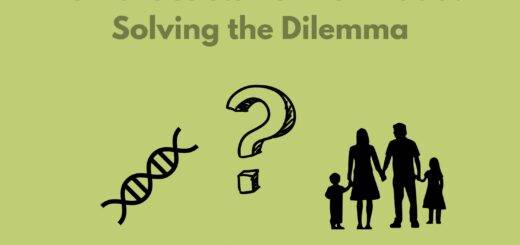How To Spot A Narcissistic Doctor? – Signs, Impacts And, Ways To Deal
How to spot a Narcissistic Doctor? Have you ever come across an arrogant, rigid, and unreasonable doctor? Someone who refuses to listen to anything that you might have to say and just insists on their advice just because they are the experts?
The fact still remains the fact that they are the professional experts here, but is it reasonable to not listen to patients regarding their problems and views just because they are superior, have more knowledge, and are healing?

Most Health care providers are committed to healing, caring, and understanding their patients; yet there are exceptional everywhere. There are some doctors who are driven by superiority and thus are self-centered and controlling. Such individuals can be tagged as narcissists. Thus medical profession also has a fair share of narcissistic professionals, whose superiority, endurance, and supremacy can impact the patients negatively and also affect the patient care.
So let us discuss the signs of a narcissistic doctor that can help the patients spot the tyrant and their effects on them. Spotting the narcissistic doctor and understanding the drawbacks of such an issue is that the patient is able to make detached decisions about health care without getting affected by the doctor’s condition.
How To Spot A Narcissistic Doctor? – 5 Signs
Beware of narcissistic doctors as they can be a threat to your health care needs. So how to spot a Narcissistic Doctor? Here are a few signs,
Failure to Listen
Narcissistic doctors tend to constantly interrupt their patients, subjugate or dominate conversations, and take part in their patient’s conversations only to divert the conversation to themselves.
For instance, if a patient complains about having headaches or feeling phlegmatic or lethargic, which are more than enough to disrupt their daily lives, then the narcissistic doctor would plainly state that it is nothing serious, as these are the symptoms of stress or a disrupted sleeping schedule, which will be cured by taking some painkillers. They would shun the patient and their complaints by dealing with them plainly.
Even if the patient insists on getting some medical tests or check-ups, the narcissist would simply refuse by saying that tests and check-ups would hardly make any difference as at this point it is unnecessary. And would say that according to their experience in the field, the patient’s symptoms are nothing serious. They do this to protect the initial statement that they provide to their patients.
Thus, a narcissistic doctor would consistently disrupt their patient’s concerns and opinions without giving them a chance to discuss their illness thoroughly.
The evidence of their having narcissistic traits is their selfish behavior that could lead to delayed treatments and put their patient’s life in danger.
Exploitative Behavior
A narcissistic doctor tends to exploit their position for either financial or emotional gain.
A narcissistic doctor would rather take up a challenging case just to prove their worth among their colleagues. They might have self-doubts or knowhows of the case with a shallow information base, yet they would attempt to take such a case.
When narcissistic doctor struggles to help their patient, they would not even ask other doctors or colleagues to help them as they believe that they are far more superior and egoistic to seek help. They may also ask their patients to get various tests for their personal surety or know-how and make the treatment way more expensive than it is.
Thus they are endangering their patient’s life by exploiting their position, knowledge, and money.
Extreme Self-Importance
The best way to test whether a doctor is narcissistic, then make a note that they would constantly be boasting their medical field accomplishments, expertise, and abilities. They might also highlight their awards and achievements in the field by displaying them in a special corner in their clinics, cubicles, or practice offices.
Narcissistic doctors may consistently claim their self-worth by stating that they are the best in a particular medical branch. They might constantly be boasting to their colleagues and other patients by constantly breathing the air of overconfidence.
They might be providing statements like,
“I have seen hundreds of such cases, there is nothing, in particular, to worry about”.
“You are fortunate that your case is being handled by someone like me, as I am particularly known for the diagnostics skills in my field.”
If the consultation starts feeling like a brag show of the doctor, then you may have to conclude that you are consulting a narcissistic doctor. Not all doctors who boast are narcissistic, but they may possess these traits that may put the diagnosis in jeopardy due to their overconfidence.
In the selfish need to gain validation and admiration from their patient, a narcissistic doctor might turn down the patient’s concerns and promote their superiority.
Lack of Empathy
Empathy is the most important emotion in healthcare, and that is what a narcissistic doctor lacks the most. A narcissistic doctor may act as if they care for their patients and their emotions, whereas in reality, they would be unaffected by their patient’s sufferings.
If the patient discusses their concerns regarding surgeries or treatments, a narcissistic doctor may voice them down by saying that they have been performing such surgeries and always have gained positive results in most cases.
If the narcissistic patient does not stop voicing their concerns, then the narcissistic doctor might state “Let us not dwell or involve emotions here, just have patience and follow my instructions and medication seriously, as you know I am an expert in the field and you do not have anything to worry about.”
Thus a narcissistic doctor may be totally indifferent to their patient’s concerns and dismiss them to maintain the control of the case by remaining unempathetic.
Lack of Accountability
Narcissistic doctors may never accept any of the mishaps or medical errors in the patient’s case and would try to cover up for the case by blaming the patient instead.
If a patient complains about post-surgery problems, the narcissistic doctor might disregard their complaints as it may hurt their ego and might have to face consequences if any mishaps might have happened during the surgery. They might turn down the patient’s complaints by providing justifications like “Such pain is legitimate after such a complicated surgery, and stop worrying about everything as you are under the care of the expert in the field.”
This way a narcissistic doctor might continuously defect the blame and avoid taking responsibility for the patient’s case if anything goes wrong in the case. Rather than addressing the patients’ concerns and complaints, the narcissistic doctor would be busy saving their reputation and ego rather than their patients’ safety and comfort.

How to deal with a Narcissistic Doctor?
Prepare yourself well if you encounter such narcissistic professionals in your treatment. Remember your rights as a patient and prioritize your needs. Expose the doctor if required.
Seek a second opinion
If you have doubts regarding the treatments and medical assessments provided by your doctor, feel free to trust your instincts and seek a second opinion from another medical professional or healthcare expert.
Seek Support
If you feel that your doctor’s behavior is unethical or jeopardizing your health, consider talking to other relevant experts or ask for help from family members, or friends by discussing your experiences and changing the treatment or entirely altering the professional.
Discuss your concerns openly and assertively
If you have any doubts about your health care and treatments, then research a little on your own and discuss that openly with your doctor. This way the doctor might know that you are also attentive regarding the treatments and they cannot just keep putting your health on-line.
Document your experiences
Keep a record of all treatments, consultations, and conversations with the doctor as proof in case there is any mishap. Note their dismissive behavior or any rude comments. This way you can consult higher authorities if you face any difficulty with your case.
Change Doctors if Necessary
If you face any difficulty or feel your concerns are not being addressed attentively then you may want to change the doctor that you may be consulting. Protecting your health is crucial at this point and not all doctors may be selfish, egotistic, and judgemental about your condition.

How prevalent is Narcissism in the Medical Profession?
As you might have expected to get an answer about narcissism being commonly prevalent in the medical profession, but the answer is actually the opposite. Narcissism is not that commonly prevalent in the medical field, according to a few studies that suggest that healthcare professionals are found in a smaller ratio in the healthcare line compared to other professions and also among the general public.
According to a study conducted in the UK, the study suggests that narcissism may be significant among surgeons compared to other professionals in the healthcare field. It may be because surgeons have dedicated more time, effort, and expertise than other professionals, and the challenging situations and complications that come along their path may also play a part in them possessing narcissistic traits.
What impact does a Narcissistic Doctor have on Patient Care?
Being under the care of a narcissistic doctor may impact the patients negatively and also make them worrisome. Let us know the impacts of narcissistic doctors,
A patient may feel discomfort
Having your voice go unheard is not a healthy sign of a doctor. This may cause discomfort for the patient as they may not be openly able to discuss their worries, symptoms, and concerns freely.
A patient may feel being bullied
Due to the grandiose self-image of a narcissistic doctor, they may intimidate or bully their patients by forcing them to choose the treatments unquestionably and unconditionally.
The patient may feel imposed
Once narcissistic doctor have made up their mind about certain treatments and have also given a thorough diagnosis they may refuse or resist any suggestions provided by other experts or their patients. They may even refuse their patients to get certain tests done as they would impose the certainty of them being knowledgeable. This could feel like an imposition on the patient.

Can Narcissism affect a doctor’s decision-making process?
According to an article published by “The Narcissistic Life“, there is research that states that doctors might demonstrate higher levels of narcissism under the influence of a potential monetary gain.
According to other research provided by mental health experts, health practitioners may be less interested in expanding their knowledge base and learning new information, they may also not be flexible in accepting new methods and techniques of practicing medicine if it makes their diagnosis and practice questionable.
They may be determined and be firm on their initial diagnosis and would refuse to consider any new insights or research. Thus narcissism may leave some potential gaps when it comes to the decision-making of a narcissistic doctor.
What are the potential risks of being treated by a Narcissistic doctor?
If you are being treated by a narcissistic doctor, then there are certain chances that your concerns, needs, and priorities might go unheard. You may also not receive the standard health care procedures that you may deserve.
A narcissistic doctor may also just use the patients to secure the narcissistic supply by manipulating and altering their needs and constantly seeking admiration from their patients.
If a patient seeks clarity and questions the doctor’s treatments then they may shun their concerns by mocking them in supple words for being hyper and health-obsessed.
This way the patient may be a victim to their gaslighting and stone-walling behavior as they may ignore their patient’s concerns altogether.
Narcissistic doctors may also refuse to take any responsibility when they cause a mishap, or if something goes wrong. They may shift the blame onto their patients to avoid their mistakes or wrongs being exposed.

Doctors with Narcissistic Personality Disorder are also more likely to seek more financial benefits or gains by recommending unnecessary services, and tests and elongating the treatment.
Thus a narcissistic doctor may harm their patient’s well-being and may also jeopardize their health more by dismissing their concerns, refusing certain diagnoses, disregarding or not considering other healthcare professionals’ opinions and recommendations, prioritizing financial gains over a patient’s health and betterment, inflicting more pain by not considering a patient’s condition by worsening their health conditions in certain conditions.
Final Thoughts
Not all doctors are mean, selfish, and pessimist. But you as a patient may always want to look for the best doctors and be aware of any such unethical doctors who may want to jeopardize your healthcare. This can be ensured by the signs, impacts, and ways to deal with what are mentioned above.
Thus a narcissistic doctor may harm their patient’s well-being and may also jeopardize their health more by dismissing their concerns, refusing certain diagnoses, disregarding or not considering other healthcare professionals’ opinions and recommendations, prioritizing financial gains over a patient’s health and betterment, inflicting more pain by not considering a patient’s condition by worsening their health conditions in certain conditions.
- How does a Narcissist respond to No Contact?: 10 Plausible reactions - November 6, 2025
- The Inverted Narcissist: Traits that Describe Them - November 6, 2025
- What is an Empathetic Narcissist?: Meaning, Traits, and Ways to Cope with Them - November 4, 2025


